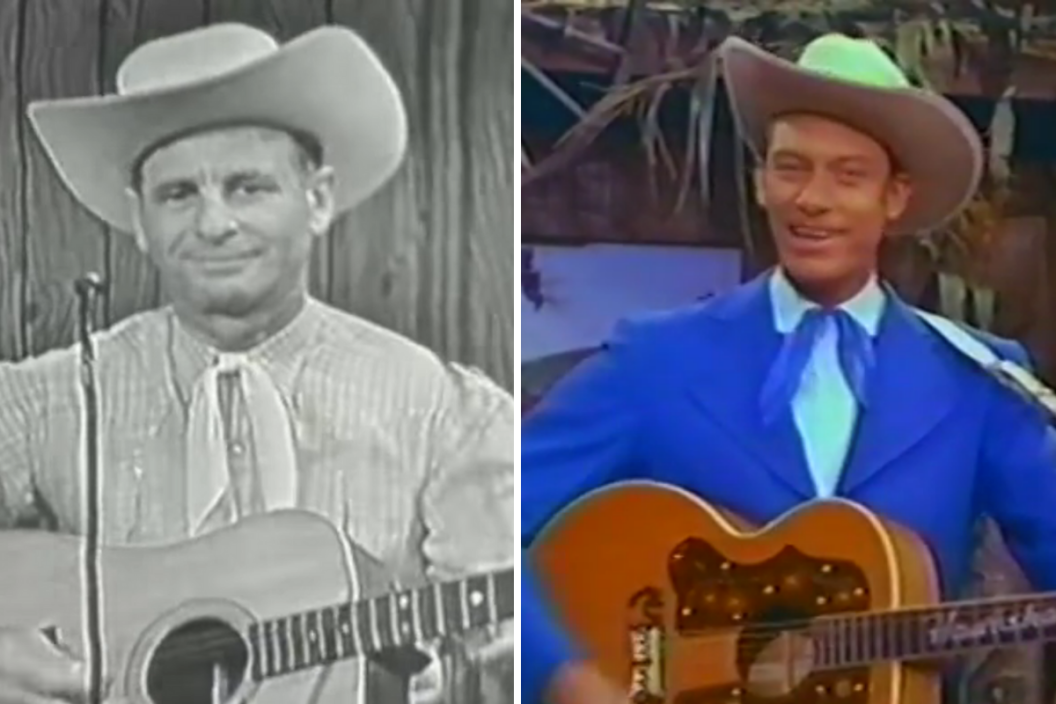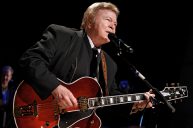Grand Ole Opry members Cowboy Copas and Hawkshaw Hawkins died in the same
Videos by Wide Open Country
March 5, 1963 plane crash that took Patsy Cline's life and should be celebrated for their decades-spanning lists of musical accomplishments.
Cowboy Copas
Copas (real name Lloyd Estel Copas) was a 49 year old veteran, with hits dating back to 1946's "Filipino Baby," a Top 5 single for King Records.
The Blue Creek, Ohio native's radio career began in Cincinnati in the '30s for both WKRC and WLW. In 1940, he moved to Tennessee, where he and his band the Golden West Cowboys performed on Knoxville's influential AM station WNOX.
In 1943, he earned a coveted spot in Nashville, replacing Eddy Arnold as the lead vocalist of Pee Wee King's band, the Gold Star Rangers.
Hits continued into the '50s, with noteworthy sides including "Signed, Sealed and Delivered," "Tennessee Moon," "I'm Waltzing With Tears in My Eyes," "Candy Kisses," "Hangman's Boogie," "The Strange Little Girl," "Tis Sweet to Be Remembered" and one of the seminal recordings of "The Tennessee Waltz."
Copas' tenor delivery and flat-top guitar picking style gave him a different sound than the so-called "hillbilly" acts of the '40s and his honky tonk peers in the '50s, making his better songs stand out to this day.
An early '60s run with Starday Records landed Copas his lone No. 1 on the country charts, "Alabam." He followed that success with the Top 15 hits "Flat Top," "Sunny Tennessee" and "Goodbye Kisses."
Randy Hughes, the pilot killed in the plane crash, was both Cline's manager and Copas' son-in-law.
Hawkshaw Hawkins
Harold Franklin "Hawkshaw" Hawkins, a 41 year old native of West Virginia, also found success in the '40s with King Records and remained a hit-maker until the end.
His earliest exposure came as a teenager, playing a guitar he'd swapped five rabbits for in a Kentucky radio station's talent contest. Hawkins won, gaining not just a guitar but a $15 grand prize for those rabbits.
After serving his country in the Battle of the Bulge, Hawkins became a regular of his home state's WWVA Jamboree. Success as a recording artist followed, with "Pan American" and "Dog House Boogie" both entering the Top 10 in 1948.
W.K. McNeil's profile on Hawkins in The Encyclopedia of Country Music: Second Edition paints the singer as a colorful character. The 6'5" entertainer, nicknamed "eleven and a half yards of personality," built a following with live shows marked by his smooth vocal delivery plus the added attraction of "trained horse acts, roping exhibitions and Australian bullwhip tricks."
He had scattered chart success in the '50s, namely with the crossover hit "Slow Poke."
Just like Copas, Hawkins' biggest hit came in the '60s. His 1963 recording of Justin Tubb's "Lonesome 7-7203" became a posthumous No. 1.
Hawkins' survivors included his second wife, fellow country music singer Jean Shepard.
Now Watch: Kenny Rogers: The Songs That Made Him Famous
https://rumble.com/embed/u7gve.v6f8h5/




